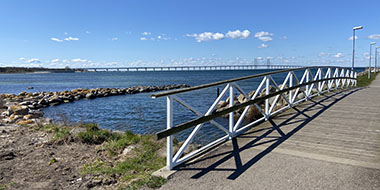AI
How Cloud and Cognitive Technologies Could Transform the Maritime Industry
Share this post:
The maritime industry, the laws and processes that support it, are steeped in history and tradition and not known for rapid change and transformation.
That is why, over the past decade, the latest cloud and AI technologies have been slow to take hold. However, with the increased availability of IT skills, more affordable technology, and COVID-19 acting as an accelerant for automation, things are starting to shift.
One example of that change is a new project by IBM and a marine nonprofit; ProMare to build one of the first full-sized and fully-autonomous research ships: the Mayflower Autonomous Ship (MAS).
MAS has a mission to collect critical oceanographic and environmental data to help safeguard the future of the ocean. It will also accelerate transformation in the marine and maritime industry with the introduction of autonomous systems resulting in a more intelligent, cost-effective, safe and flexible shift for marine technology.
MAS has an exciting future ahead of it. Over the next six months, it will undertake several research missions and voyages ahead of a planned transatlantic crossing in Spring 2021. It will do this with level-5 autonomy with no human intervention, and mostly using solar power to drive its onboard electric motors.
I am lucky to be part of the MAS project. I help to write an application to the Norwegian research center, for research funding to further support the development of MAS to conduct marine biology experiments.
The technical parts of MAS depend on IBM’s advanced technologies. With decades of experience that IBM has in this field, IBM is capable of delivering high performance and enterprise-level technology for MAS. IBM Hybrid cloud with its powerful edge computing technology provides the ship with a real-time efficient computation capability for local AI workloads, to communicate among various components both onboard and via cloud network connectivity.
Some may come to think, that the ship is not able to receive the remote command while it is in the middle of the Atlantic Ocean, and therefore how is the ship able to operate automatically? ProMare and IBM engineers have overcome that challenge by developing an AI Captain that runs locally on the ship’s edge devices. Using computer vision systems and automated decision management systems, the AI Captain can avoid ocean hazards while always staying in line with maritime industry collision regulations. These calculations are based on data from the ship’s plethora of onboard sensors. When a network connection becomes available, IBM Hybrid Cloud will assist the ship in synchronizing the edge system with the cloud network.
IBM’s AI and automation technologies enable real-time learning, analysis and prediction needed for such an ambitious autonomous mission. While these technologies are new to the marine industry, they are used widely across industries such as medical, chemical or insurance. By clicking here, you will be provided distinguished use cases in various industries if you are interested to know more about continuous intelligence.
On Wednesday, September 16th 2020, MAS was launched at a naming ceremony with the American and Dutch ambassadors to the UK. When it crosses the Atlantic in Spring 2021, it will be the first fully autonomous and full-sized ship to undertake that voyage.
If you want to learn more and stay updated about MAS, please visit the new MAS400 mission portal.
If you have any further questions about the Mayflower project, then please do not hesitate to contact me at Jack.Chiu1@ibm.com

Client Technical Specialist in AI and Data
New enablement materials for IBM Ecosystem Partners
On October 4th, IBM announced a revamped skilling program available for partners. The skilling and badging program is now available to our partners in the same way that it is available for IBMers, at no cost. This is something that our partners have shared, they want more expertise – more opportunities to sharpen their technical […]
Data Democratization – making data available
One of the trending buzzwords of the last years in my world is “Data Democratization”. Which this year seems to have been complemented by “Data Fabric” and “Data Mesh”. What it is really about the long-standing challenge of making data available. It is another one of these topics that often gets the reaction “How hard […]
How to act in the new regulation of financial sector
Our world is changing. Because of that regulators around the world are taking ambitious steps to improve the sustainability of the financial sector and guide capital towards sustainable economic activity. Especially in EU we are seeing a high level of regulations. These regulatory interventions present complex and sensitive legal challenges for financial sector firms, which […]


